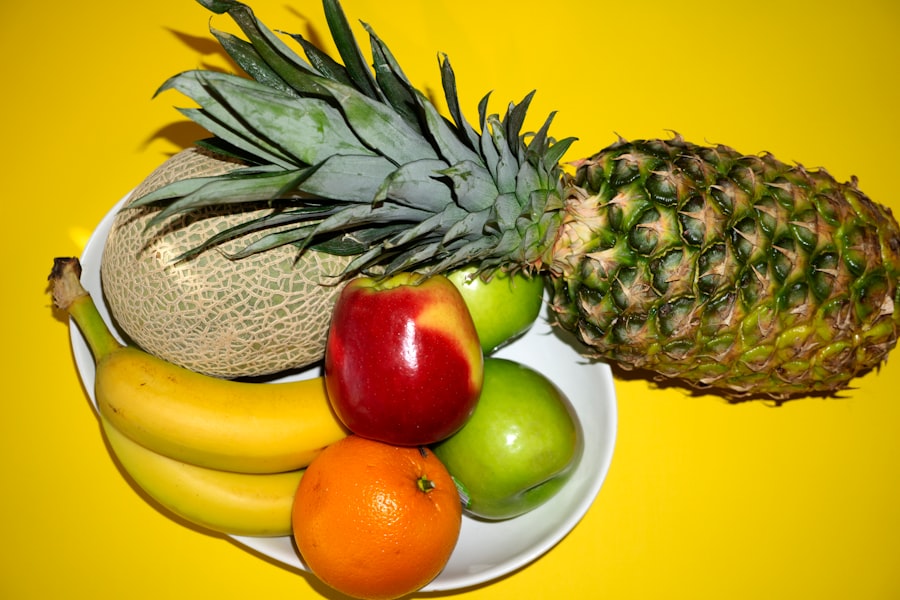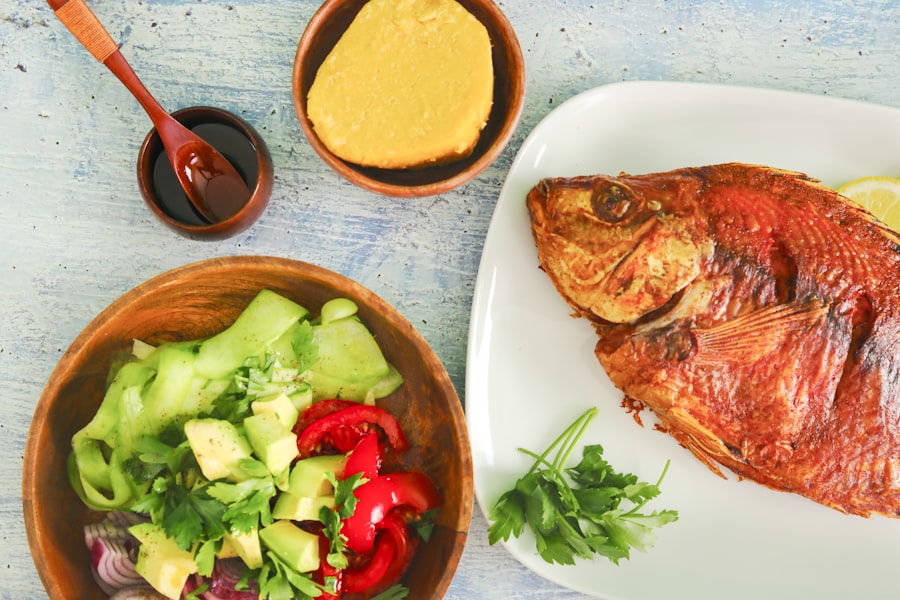As you age, the significance of maintaining a healthy liver becomes increasingly paramount. The liver is a vital organ responsible for numerous functions, including detoxification, metabolism, and the production of essential proteins. After the age of 60, your liver may not function as efficiently as it once did, making it crucial to adopt lifestyle choices that support its health.
A well-functioning liver can help you maintain energy levels, support digestion, and even enhance your overall quality of life. Moreover, the liver plays a critical role in processing nutrients from the foods you consume. As you enter your golden years, your body’s ability to absorb and utilize these nutrients may decline.
This is where a focus on liver health can make a significant difference. By prioritizing liver-friendly foods and habits, you can help ensure that your body continues to receive the nourishment it needs to thrive. A healthy liver can also reduce the risk of chronic diseases, which tend to increase with age, allowing you to enjoy a more vibrant and active lifestyle.
Key Takeaways
- A healthy liver is crucial for overall well-being, especially after the age of 60.
- Leafy greens and cruciferous vegetables are essential for liver health due to their high antioxidant content.
- Lean protein sources such as chicken, fish, and tofu support liver function and repair.
- Healthy fats from nuts and seeds provide essential nutrients for liver health and overall vitality.
- Citrus fruits and berries are rich in vitamin C and antioxidants, which are beneficial for liver function.
Leafy Greens and Cruciferous Vegetables
Incorporating leafy greens and cruciferous vegetables into your diet is one of the most effective ways to support liver health. These nutrient-dense foods are rich in antioxidants, vitamins, and minerals that can help protect your liver from damage. Leafy greens such as spinach, kale, and Swiss chard are particularly beneficial due to their high chlorophyll content, which aids in detoxification processes.
By adding these greens to your meals, you can enhance your liver’s ability to eliminate toxins and improve its overall function. Cruciferous vegetables like broccoli, Brussels sprouts, and cauliflower are also excellent choices for promoting liver health. They contain compounds known as glucosinolates, which have been shown to support the liver’s detoxification enzymes.
Including a variety of these vegetables in your diet not only provides essential nutrients but also adds flavor and texture to your meals. Whether you enjoy them steamed, roasted, or in salads, these vegetables can be a delicious way to nourish your liver while enjoying your food.
Lean Protein Sources

Lean protein sources are essential for maintaining muscle mass and supporting overall health as you age. Your liver plays a crucial role in metabolizing protein, making it important to choose high-quality sources that are easy for your body to process. Options such as chicken breast, turkey, fish, and plant-based proteins like beans and lentils can provide the necessary amino acids without overburdening your liver.
In addition to being beneficial for liver health, lean proteins can help you feel fuller for longer periods, which can be particularly helpful if you’re looking to manage your weight. By incorporating a variety of protein sources into your diet, you can ensure that your body receives the nutrients it needs while also supporting your liver’s functions. Aim for balanced meals that include lean proteins alongside plenty of vegetables for optimal health benefits.
Healthy Fats from Nuts and Seeds
| Nut/Seed | Healthy Fats (per 1 oz) | Calories (per 1 oz) |
|---|---|---|
| Almonds | 14g | 163 |
| Walnuts | 18g | 185 |
| Chia Seeds | 9g | 138 |
| Flaxseeds | 12g | 150 |
Healthy fats are an essential component of a balanced diet, especially for supporting liver health as you age. Nuts and seeds are excellent sources of these beneficial fats, providing omega-3 fatty acids that can help reduce inflammation and promote overall well-being. Incorporating foods like walnuts, flaxseeds, and chia seeds into your daily routine can provide your body with the healthy fats it needs while also supporting liver function.
In addition to their anti-inflammatory properties, nuts and seeds are rich in vitamins and minerals that contribute to overall health. For instance, almonds are high in vitamin E, which has been shown to protect the liver from oxidative stress. By snacking on a handful of nuts or adding seeds to your smoothies or salads, you can easily boost your intake of healthy fats while enjoying delicious flavors and textures.
Citrus Fruits and Berries
Citrus fruits and berries are not only refreshing but also packed with nutrients that can benefit your liver health. Citrus fruits like oranges, lemons, and grapefruits are rich in vitamin C and antioxidants that help combat oxidative stress in the body. These fruits can aid in detoxification processes by promoting the production of enzymes that assist the liver in breaking down toxins.
Berries such as blueberries, strawberries, and raspberries are also excellent choices for supporting liver health. They contain powerful antioxidants called polyphenols that have been shown to protect the liver from damage. Including a variety of these fruits in your diet can provide a delicious way to enhance your overall health while giving your liver the support it needs.
Whether enjoyed fresh, blended into smoothies, or added to yogurt or oatmeal, citrus fruits and berries can be a delightful addition to your meals.
Whole Grains and High-Fiber Foods

Whole grains and high-fiber foods play a vital role in maintaining digestive health and supporting liver function. Foods like brown rice, quinoa, oats, and whole-grain bread are excellent sources of fiber that can help regulate digestion and promote a healthy gut environment. A well-functioning digestive system is essential for optimal liver health since it aids in the elimination of waste products from the body.
Incorporating high-fiber foods into your diet can also help manage cholesterol levels and reduce the risk of fatty liver disease. Foods such as legumes, fruits, and vegetables are not only rich in fiber but also provide essential vitamins and minerals that contribute to overall well-being. By focusing on whole grains and high-fiber options, you can create balanced meals that support both your digestive system and liver health.
Turmeric and Other Anti-Inflammatory Spices
Turmeric is often hailed as a superfood due to its potent anti-inflammatory properties. The active compound curcumin found in turmeric has been shown to have numerous health benefits, including supporting liver function. Incorporating turmeric into your meals can help reduce inflammation in the body and promote overall liver health.
You might consider adding it to soups, stews, or even smoothies for an extra nutritional boost. In addition to turmeric, other anti-inflammatory spices such as ginger, garlic, and cinnamon can also be beneficial for your liver. These spices not only add flavor to your dishes but also provide various health benefits that support overall wellness.
By experimenting with different spices in your cooking, you can create flavorful meals while promoting a healthier liver.
Green Tea and Coffee
Both green tea and coffee have been linked to numerous health benefits, including improved liver function. Green tea is rich in catechins, which are antioxidants that have been shown to enhance liver function and reduce fat accumulation in the organ. Drinking green tea regularly may help protect against liver diseases while providing a refreshing beverage option.
Coffee is another beverage that has garnered attention for its potential liver benefits. Studies suggest that moderate coffee consumption may lower the risk of developing liver diseases such as cirrhosis and fatty liver disease. The antioxidants found in coffee may help protect the liver from damage caused by toxins.
If you enjoy coffee or tea, incorporating these beverages into your daily routine could be a simple yet effective way to support your liver health.
Foods Rich in Vitamin E and C
Vitamins E and C are essential nutrients that play a significant role in maintaining liver health. Vitamin E is known for its antioxidant properties, helping to protect cells from oxidative stress and inflammation. Foods rich in vitamin E include nuts, seeds, spinach, and avocados.
By including these foods in your diet, you can provide your body with the necessary nutrients to support optimal liver function.
Citrus fruits, strawberries, bell peppers, and broccoli are excellent sources of vitamin By ensuring you consume a variety of foods rich in these vitamins, you can enhance your overall health while specifically targeting the needs of your liver.
Foods to Avoid for Liver Health
While there are many foods that promote liver health, it’s equally important to be aware of those that can be detrimental to its function. Processed foods high in sugar and unhealthy fats can lead to fat accumulation in the liver, increasing the risk of fatty liver disease. Additionally, excessive alcohol consumption can cause significant damage to the liver over time.
Trans fats found in fried foods and baked goods should also be avoided as they can contribute to inflammation and negatively impact liver function.
By making conscious choices about what you eat, you can significantly improve your overall well-being.
The Role of Hydration in Liver Health
Hydration is often overlooked when discussing liver health but is crucial for maintaining optimal function. Water plays an essential role in various bodily processes, including digestion and detoxification. Staying adequately hydrated helps ensure that your liver can efficiently process nutrients and eliminate waste products from the body.
In addition to drinking water, incorporating hydrating foods such as cucumbers, watermelon, and oranges into your diet can further support hydration levels. Aim to drink plenty of fluids throughout the day to keep your body functioning at its best. By prioritizing hydration alongside a balanced diet rich in liver-friendly foods, you can take significant steps toward maintaining a healthy liver as you age.
In conclusion, prioritizing liver health after 60 is essential for maintaining overall well-being as you age. By incorporating nutrient-dense foods such as leafy greens, lean proteins, healthy fats from nuts and seeds, citrus fruits, whole grains, anti-inflammatory spices like turmeric, green tea or coffee into your diet while avoiding processed foods high in sugar or unhealthy fats will significantly benefit your liver function over time. Remember that hydration plays an equally important role; staying hydrated will further enhance these efforts toward achieving optimal health!
As we age, maintaining liver health becomes increasingly important, especially after the age of 60. A diet rich in antioxidants, fiber, and healthy fats can support liver function and overall well-being. Foods such as leafy greens, nuts, and fatty fish are excellent choices for promoting liver health. For more detailed information on the best foods to incorporate into your diet for optimal liver health, you can explore this related article on Explore Senior Health. This resource provides valuable insights and tips tailored to the nutritional needs of seniors.
WATCH THIS! 🧃The 60-Year Liver Lie: Why Your “Healthy” Juice Is Destroying Your Liver
FAQs
What are the best foods for liver health after 60?
Some of the best foods for liver health after 60 include leafy greens, fatty fish, nuts, olive oil, and fruits like berries and grapes.
Why are leafy greens beneficial for liver health?
Leafy greens like spinach, kale, and arugula are high in antioxidants and fiber, which can help protect the liver and promote its overall health.
How does fatty fish contribute to liver health?
Fatty fish like salmon, mackerel, and sardines are rich in omega-3 fatty acids, which can help reduce inflammation and fat buildup in the liver.
What role do nuts play in promoting liver health?
Nuts like walnuts and almonds are high in healthy fats, antioxidants, and vitamin E, all of which can support liver function and protect against liver disease.
How does olive oil benefit liver health?
Olive oil contains anti-inflammatory compounds and antioxidants that can help reduce liver damage and improve overall liver function.
Why are berries and grapes recommended for liver health?
Berries and grapes are high in antioxidants and other beneficial compounds that can help protect the liver from damage and support its detoxification processes.
